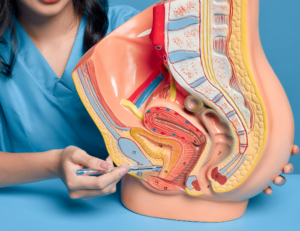What does a gynecologist do for the woman over 50 at an annual exam?
What are the standard "checks" for the woman over 50?
Height, weight, body mass index, evidence of osteoporosis, clinical breast exam, and a colorectal screening exam if they haven’t had a recent colonoscopy. We ensure they have received the proper immunizations. If a woman hasn’t seen a primary care physician, we assume more of that role and we test for diabetes, thyroid and cholesterol. We spend some time talking about diet and exercise. We take an in-depth medical history so we can offer genetic testing to those who may be candidates. We perform a pelvic exam using a speculum to visualize the vagina and cervix and we do a bimanual exam to ensure the uterus and ovaries have no detectable abnormalities. The inspection leads to a lot of other questions. For example, I might see on examination that a patient’s bladder has dropped. There are many problems with the bladder and it’s our job to figure out what is wrong. (See Dr. Kahan’s presentation, Bladder, Bladder What’s the Matter?)








